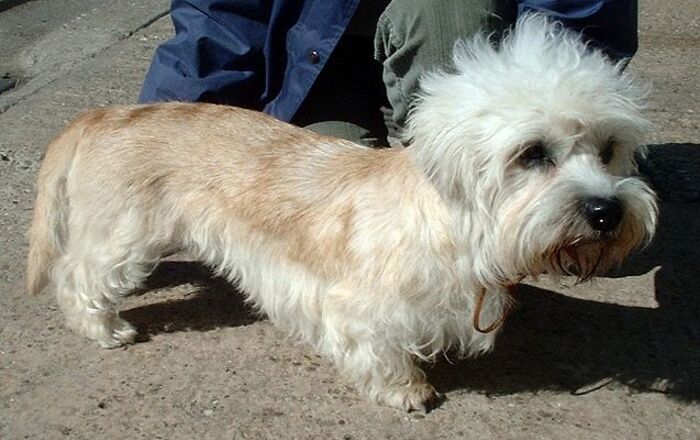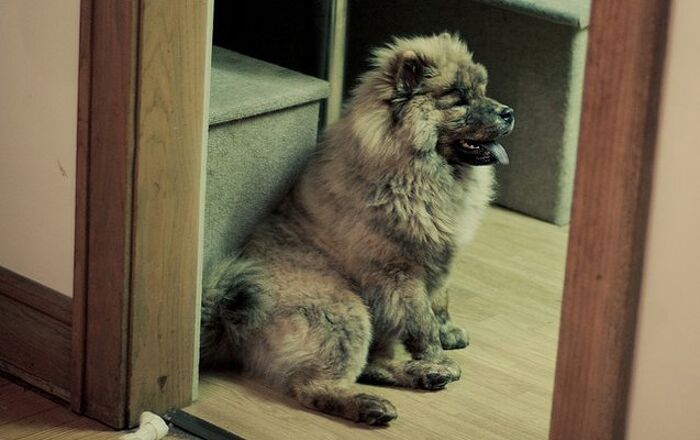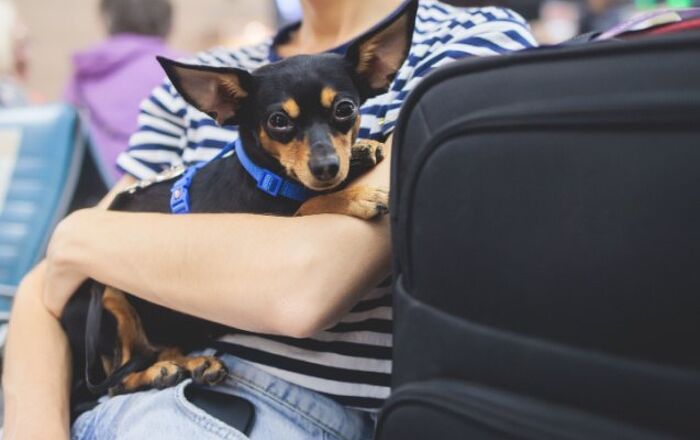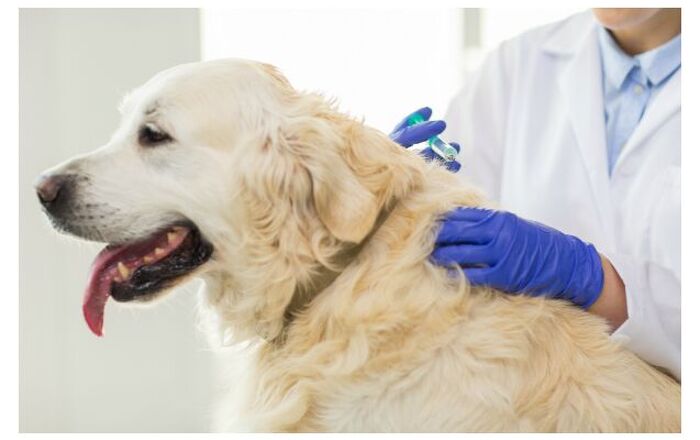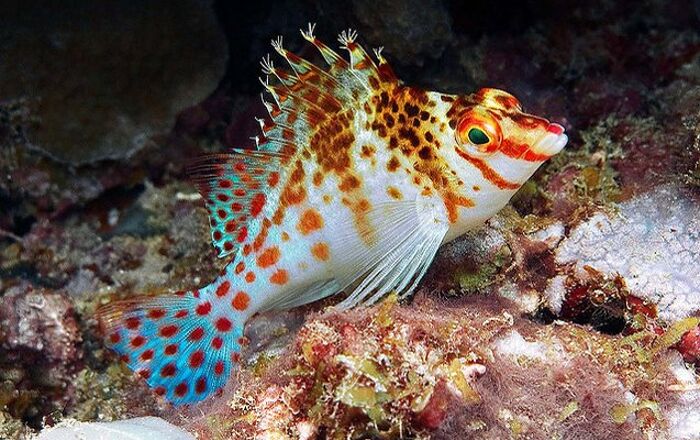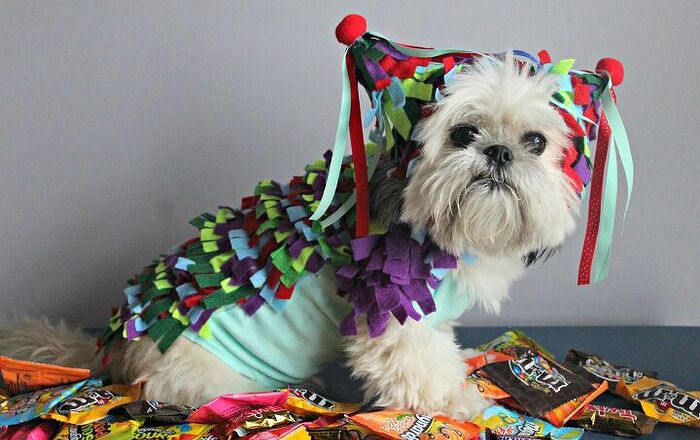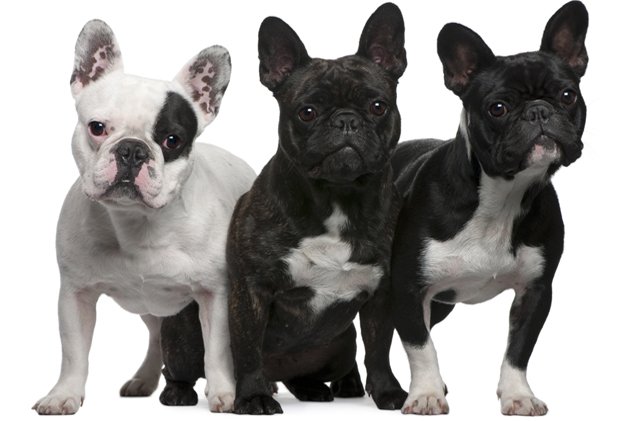
French Bulldog Basics
Anyone looking for a bulldog that’s a little more continental than the standard English edition has another exciting option. The French Bulldog is très bien, especially if you’re looking for a new dog to bring home! This short, stocky, and absolutely adorable little fellow always looks like he’s in a good mood. This happy look comes from the shape, size, and bone structure of the head, as well as its little bat ears.The pup is genetically predisposed to put a smile on the face of any human who gazes upon his glory. How could anyone resist a face like that? On top of that irresistible appearance, these lovable clowns make great family pets and love to play just as much as they love to cuddle.
Bringing home a dog – any dog – is a big decision, so you want to make the right choice. If you’ve been toying with the idea of a French Bulldog (also known as a Frenchie), you’ve come to the right place. All you need to do is keep your eyes glued to this page and scroll away. Everything that you could possibly want to know about the French Bulldog is about to be revealed. So, read on to find out if this breed is a perfect fit for you.
This short, stocky and adorable little fellow always looks like it’s in a good mood.
Origin
Despite its name, the French Bulldog was employed by lacemakers in 19th-century Nottingham, England. That’s right, these dogs aren’t even a little bit French in origin. In fact, they might even be more English than the English bulldog. We apologize for the false advertising, but as that you not hold it against this remarkable pooch. The original French Bulldog owners selectively bred the early bulldog for a downsized or “toy” bulldog as a lap pet. At the onset of the Industrial Revolution, some of these lacemakers made their way to France and took the dogs with them. Soon, these toy bulldogs became popular in France, and in the late 1800s, this breed became known as French Bulldogs due to their popularity in the land of the croissant. The breed’s popularity soon spread to North American when wealthy Americans on the Grand Tour fell in love with them. We told you that these pups were irresistible.
Pedigree
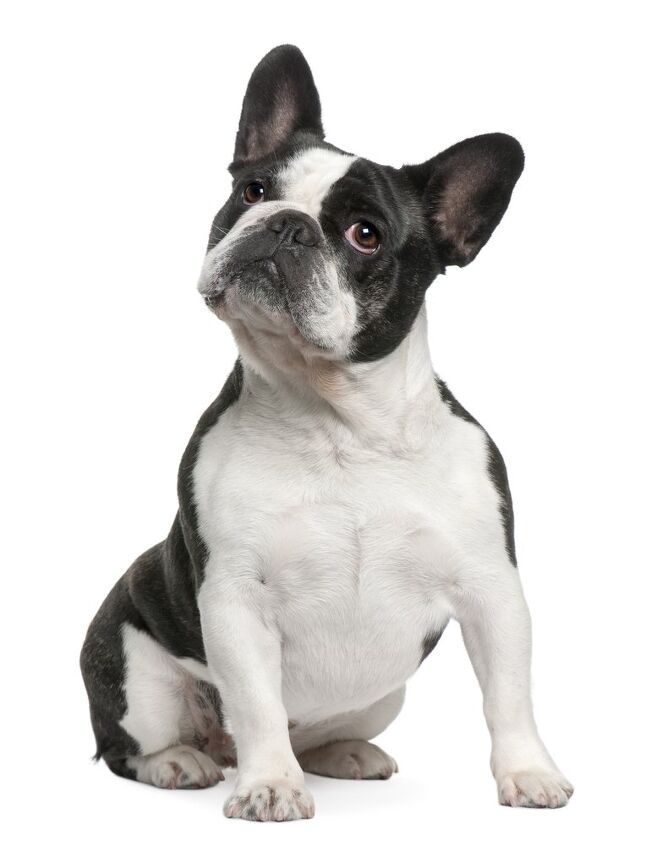
Food / Diet
French Bulldogs are known for its sensitive stomachs, so you must be careful what you feed your pet. Corn and wheat can make your Frenchie itchy, so go with premium dog foods. French Bulldogs love fruit, but only feed your pooch this treat in limited amounts. As with most dogs, it’s always best to focus on premium kibble. However, while dog food manufacturers and pet blogs provide useful feeding guidelines, these are still just guidelines and should not be treated as gospel. All dogs are different after all, each with their own needs. The only person qualified to determine the specific dietary needs of your personal pooch is a veterinarian. This is especially true when it comes to a pup like the French Bulldog with a notoriously sensitive stomach. So, before establishing or altering the diet of your French Bulldog, make sure to seek out the advice of a vet. That way you can be certain that what you poor into the bowl won’t upset his little tum-tum.
These lovable clowns make great family pets and love to play just as much as they love to cuddle.
Training
Relatively easy to train dogs, you must be consistent and kind when working with your French Bulldog. This breed likes to please its owners, but it is known to have a stubborn streak. This means that if your French Bulldog thinks its pleasing you, it’s more likely to act obediently. You’ll find that negative reinforcement is not the way to train a French Bulldog. So, it’s important to focus on positive reinforcement and reward-based training throughout those early and impressionable puppy days. Not only is that the most effective way to train a French Bulldog, but it’s the best way to train any dog. After all, negative reinforcement is closer to abuse than a training technique.
When it comes to housebreaking, the easiest way to teach a French Bulldog is by using a crate. In this method, the dog is kept in the crate and let out to do its business. French Bulldogs want to always be near its owners, so it will pick up the housebreaking rules quickly in order to get out of the crate. Because accidents do happen, try redirecting and a gentle reprimand. Because these pups have such a desire to please, you’ll find that this process will go quite smoothly relative to other breeds.
French Bulldogs need proper socialization in order to be happy. Start introducing your Frenchie to people, dogs and other animals from an early age, otherwise your dog will prefer company of one person. Socialization is important, so make an effort to do this as early and often as possible. You don’t want to waste those impressionable puppy days because it’s so much more difficult to break bad habits in adult dogs than it is to establish good habits with puppies.
Weight
Both male and female French Bulldogs weigh in the 22 to 28 pound range.
Temperament / Behavior
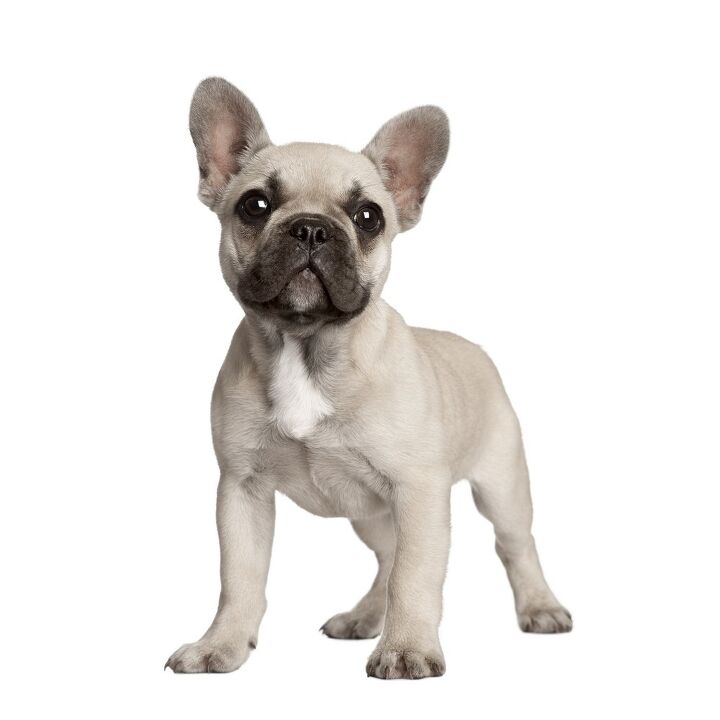
A wonderful friend and a good family member, the French Bulldog is playful and has a sweet and funny personality. Although it gets along with everyone, the French Bulldog usually forms a special bond with just one person. When introducing the French Bulldog to other dogs and young children, you should be careful, as it can occasionally be aggressive or play roughly. Neutering male dogs may decrease the chance of aggression. Early socialization will help curb these potentially rough tendencies.
When you are consistent and gentle, your French Bulldog will learn well. This breed doesn’t like being treated harshly or yelled at. As stated above, they will not respond well to negative reinforcement.
Because of its calm and happy-go-lucky personality, the French Bulldog is well suited for many different living environments, including apartment living (good news urban singles!). The Frenchie makes a good watchdog and will inform you of any visitors.
Common Health Problems
Since the French Bulldog is a smaller dog, it’s important to keep its weight regulated. Respiratory problems are common, and it worsens if it is overweight, as its abdomen swells and presses against its lungs.
In addition to breathing problems, French Bulldogs may suffer from snoring, wheezing and eye problems. And since puppies tend to have large heads, it could lead to caesarean births. Also watch out for dry skin that can result in bald spots on your Frenchie’s coat.
It is important to maintain regularly scheduled checkups with a vet to ensure that any potential health issues are identified and treated as early as possible.
Life Expectancy
French Bulldogs have a life expectancy of 10 to 12 years.
Exercise Requirements
Because French Bulldogs can put on extra weight, it’s important that your dog gets enough daily exercise. Be aware that French Bulldogs are susceptible to heat related problems and should play indoors when it is warm outside. Playing ball or running around in an air conditioned environment is fun and safe – as long as it is play, the Frenchie doesn’t care where it is.
When the weather is right, be sure to take your French Bulldog out for a walk. Stay away from water, as French Bulldogs are poor swimmers, thanks to its short and stout body.
A wonderful friend and a good family member, the French Bulldog is playful and has a sweet and funny personality.
AKC
The American Kennel Club says this about the breed: “Often described as “a clown in the cloak of a philosopher,” the French Bulldog originated as, and continues to be used as a companion dog. Prized for their affectionate natures and even dispositions, they are generally active and alert, but not unduly boisterous.”
Coat
Sporting loose and wrinkled skin on its shoulders and head, the French Bulldog’s coat is soft and short. There is some shedding, which is more pronounced during the change of seasons. But since this is fine hair, the shedding may not be very noticeable
Regular bathing is not recommended for the French Bulldog, due to its dry skin, but it is important to brush your French Bulldog often. Use a wet cloth to clean your dog’s skin, ears and face (French Bulldogs tend to drool) and get in the habit of brushing its teeth.
Puppies
It’s important to socialize your French Bulldog puppy as soon as possible. As well, extra care should be taken around young children, as the puppy is small.
Photo credit: Eric Isselee/Shutterstock

